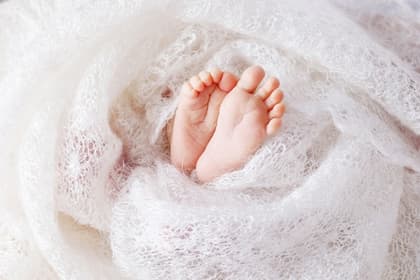Egg Donation: Common Questions That Come Up

Egg donation is one of the assisted reproduction treatments (ART) we perform at URE Centro Gutenberg and is also a type of treatment that raises several questions we would like to answer in this article. Egg donation makes it possible for women who cannot get pregnant with their own eggs, for different reasons, to become mothers.
There are several reasons why this type of treatment may be carried out, the most common one being advanced maternal age; age is one of the factors that has the greatest impact on your fertility.
Who is egg donation for?
The main indications for egg donation, also referred to as In Vitro Fertilisation with Donor Eggs, are the following:
- Patients with premature menopause: premature menopause is when a woman’s ovaries stop working and her menstrual cycles stop before the age of 40.
- Patients with poor egg quality: these patients have normally already undergone several assisted reproduction treatments with negative outcomes (inseminations, IVF-ICSI treatment, etc.), thus the reason why their doctor ultimately suggests egg donation as the only alternative.
- Patients with hereditary illnesses: although nowadays we can carry out a Preimplantation Genetic Diagnosis, there are still illnesses which cannot be detected using this technique.
- Patients of advanced maternal age: unfortunately, women often find themselves professionally stable and/or emotionally ready for parenthood later than they would like. Although these women are perfectly healthy and at the peak of womanhood, their ovaries no longer respond as would be desirable to bear children without difficulty; thus, the only option for becoming a mother is to turn to egg donation.
What does egg donation involve?
This assisted reproduction technique involves retrieving donor oocytes by follicular puncture, fertilising them in the laboratory with partner sperm (or with sperm from a sperm bank, depending on the case) through In Vitro Fertilisation and, finally, transferring them to the future mother following a few days of embryo development in the laboratory.
On the URE Centro Gutenberg website you can find more information about the different stages that make up egg donation.
How is a donor selected for egg donation treatment?
Under the current Assisted Reproduction Law in Spain, both egg donation and sperm donation are anonymous and altruistic acts; therefore, a specialised team at the clinic will be in charge of assigning a suitable donor to the patient.
The donor selection process takes into account blood group and a series of physical characteristics such as:
- Race
- Eye colour
- Hair colour
- Height and weight
Who forms part of the egg donation team at URE Centro Gutenberg?
At URE Centro Gutenberg we boast a team of highly qualified and experienced professionals who will carry out any assisted reproduction treatment.
This team, formed by doctors, embryologists, nurses and a psychologist, will work hard to assign the most suitable donor to each patient according to their individual case, and in record time to minimise wait times.
What selection process do donors have to undergo at URE Centro Gutenberg?
To donate eggs at our fertility clinic donors must meet a series of requirements. All donors at URE Centro Gutenberg undergo a thorough screening, both physical and psychological, before being accepted; donors must always be between the ages of 18 and 35.
All tests required by law will be carried out and shall always include, at the very least, the following analyses:
- Gynaecological examination and cervical pap smear.
- Blood group and Rh factor.
- Screening for Syphilis, Hepatitis B, Hepatitis C and HIV.
- Clinical study for detection of the stages of infection of Toxoplasmosis, Rubella, Herpes Virus and Cytomegalovirus.
- Clinical study for detection of Neisseria gonorrhoeae and Chlamydia trachomatis.
- Karyotype and genetic study of some of the most common illnesses in the Mediterranean region (Cystic Fibrosis, Fragile X Syndrome…).
As you can see, we use a well-defined process to prepare egg donors at URE Centro Gutenberg.
What will my treatment entail?
When undergoing egg donation treatment it is necessary that your uterus is well‑prepared so that implantation of the embryo(s) occurs correctly. For this, the doctor will prescribe a low-dose hormone treatment and perform a series of ultrasounds to ensure that everything is perfect on the day of the embryo transfer.
The embryo transfer involves introducing the embryo(s) into the uterine cavity through the vagina. It is an outpatient, painless procedure that is carried out in the operating theatre and lasts less than 10 minutes; it does not require anaesthesia or hospitalisation. The recipient will continue taking the hormone therapy to favour viability of the possible pregnancy. Between eleven and thirteen days after the embryo transfer (depending on the stage of embryo development), it will be time to carry out the pregnancy test and Beta-hCG blood analysis.